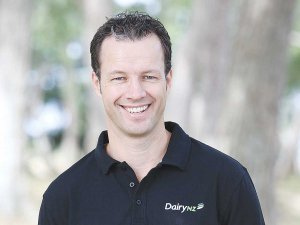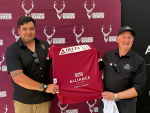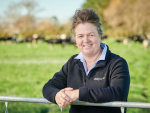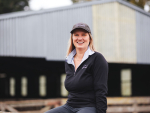Southern dairy farmers will have a front-row seat in designing, approving and testing a new wintering system in Southland.
Invercargill’s Southern Dairy Hub research farm is hosting a new project to take a cost-effective wintering system into a full on-farm trial in 2022. The research is the first time this infrastructure has been trialled in New Zealand.
The $3.2m project is led and co-funded by DairyNZ, with investment of $1.75m from the Ministry for Primary Industries’ Sustainable Food & Fibre Futures (SFF Futures) fund. MPI and DairyNZ expect to finalise the contract for the project by the end of this month.
DairyNZ chief executive Dr Tim Mackle said the project is researching two concepts for uncovered structures where cows are kept during winter.
“As well as being effective for the environment and animal wellbeing, the infrastructure needs to be good for people working in it and cost-effective for farmers,” said Mackle.
“Investing in new systems and infrastructure is a big decision and cost. This work will not only stress-test the solutions, but also put farmers and their animals at the centre.
“Environmental protection and animal care will be pivotal components during the design stage – ensuring the concepts integrate with a pasture-based system, are in line with New Zealand’s water and air quality values, and cow care is a priority.”
Southern Dairy Hub was established to help develop and test new options for dairying in the southern South Island. Integrating off-paddock infrastructure into pasture systems was a research area identified by farmers in 2017.
MPI director investment programmes Steve Penno says fit-for-purpose facilities will help farmers manage through winter and other weather events.
“We see real benefit in investing in this project through SFF Futures, as it’ll help to ensure more options are available to farmers for their stock, particularly during winter.
“A key part of the project will be developing and road-testing a solution that is practical and accessible for farmers and, importantly,” says Penno.
Three-phased project
Phase one of the project has identified two design concepts. Phase two will take these concepts and produce detailed designs.
“These designs will be accurately costed and assessed against ‘fit for purpose’ criteria for environmental impact, cow comfort and health, working conditions, and international cost competitiveness,” says DairyNZ chief executive Tim Mackle.
“Phase two will also research alternate technologies for cow loafing surfaces.”
A core innovation goal is identifying a new ‘super surface’ that supports cow comfort to a much greater degree and at less cost than current options.
“We aim to leverage off technologies and developments, such as recycled plastics and rubber used in other industries. Ultimate spin-offs could include new New Zealand manufacturing opportunities to service other sectors and international markets,” says Mackle.
The project will also look at other approaches such as innovation in infrastructure design and contract arrangements for harvesting and feeding winter forage supplements, to reduce the need for expensive farm machinery.
Southern Dairy Hub is pleased the project has been influenced by farmers, involving local farmers in every phase.
“Farmers will contribute to the concepts’ design and what will work on farms in reality,” says Tim Driscoll of Southern Dairy Hub.
The build will begin in 2022, with trialling underway June 2022. This new integrated hybrid wintering system will be compared with the best of the hub’s current grazed winter crop systems.


















